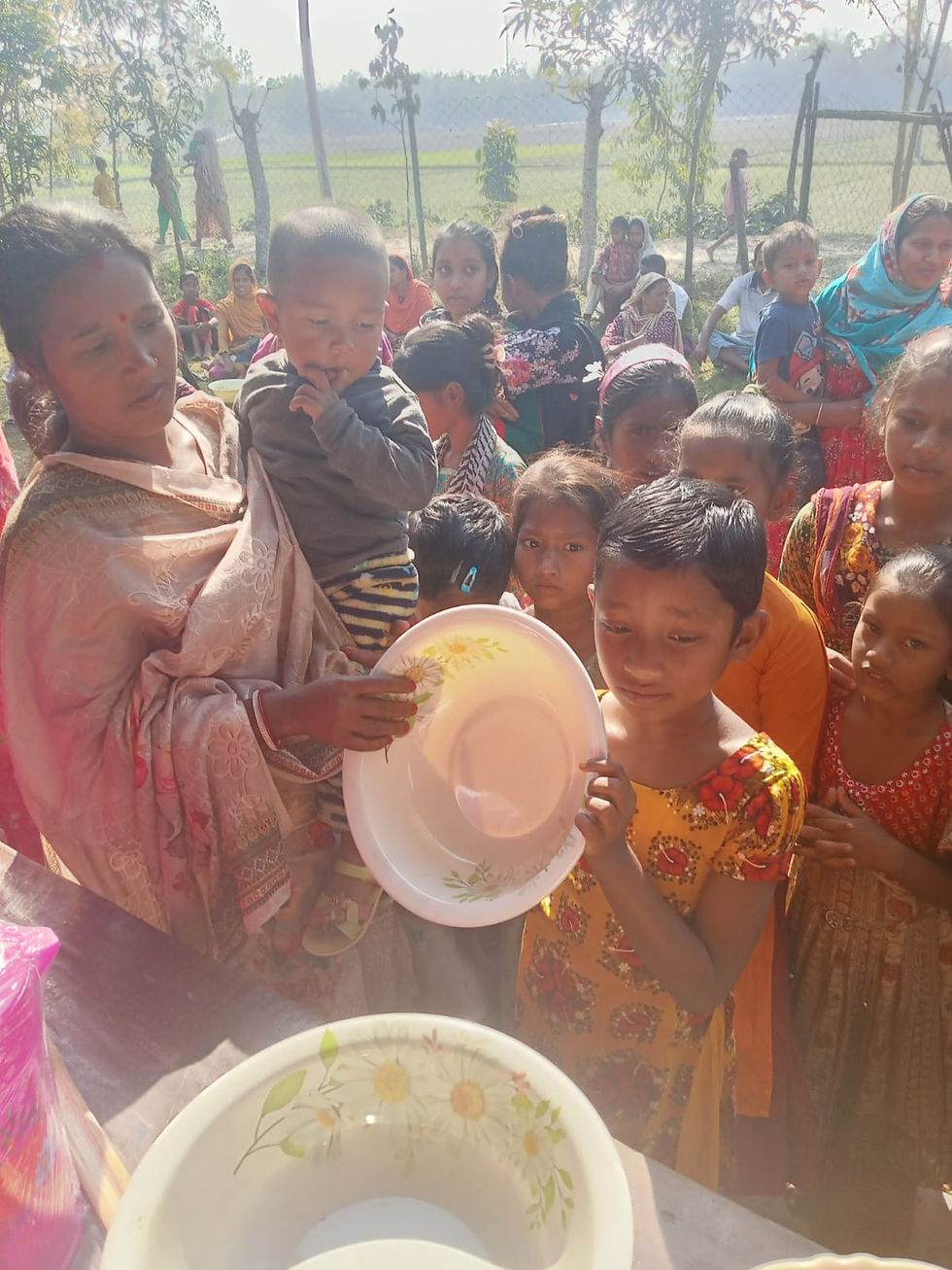- 7 days ago

Students from the pre-primary program and Grades One to Five have now returned to school after the year-end break.

They enjoyed the annual sports competition ...

and the prize-giving ceremony ...

and textbook distribution.







Since 2023, we have been working with Sajida Foundation, one of the leading NGOs in Bangladesh, to develop their psychiatric services. During 2025 BHP volunteers based in Canada provided weekly training and mentoring sessions via video link.

In this interview, Sajida Foundation Executive Director, Zahida Kabir describes the philosophy behind their innovative mental health programs. "Mental health is not a luxury," she says. "Rather, it's a necessity. We're trying to shift how people think about mental health -- from taboo to tool." After many years operating community-based programs, in mid-2025, Sajida Foundation opened “The Neuroscience & Psychiatry Hub”, Bangladesh's first private long-term psychiatric facility for severe conditions such as bipolar disorder and psychosis. Before The Hub, "There was no place in Dhaka where you could admit a loved one without fear of stigma or substandard care," Kabir said to the Daily Star reporter. "So we built one. We had to navigate a vacuum: There were no licensing frameworks, no unified oversight. We engaged with ministries, councils, and local authorities -- no one had a blueprint. We took seven years to get this model right. Every centre, every therapist, every session must reflect that standard. This isn't just a care facility; it's a culture shift."

Most of the students attending Bluebell School live in nearby social housing provided by government for very poor families. In most of these families, the parents are only partially literate and may not be able to assist their children’s learning. However, as we have heard in community dialogues sponsored by Oasis for Posterity, Bluebell parents are strongly supportive of better education for their children.
Rabiul Islam, President of OFP reports that recently nine Grade 5 students graduated from Bluebell School and all went on to secondary school. This is an important achievement because child marriage is still widespread in Bangladesh. Some parents believe there is no benefit for their family to educate a daughter who will move to her husband’s family home after marriage.
Mr. Altaf, Headmaster of Bluebell School approached the headmasters of better-quality local schools to request financial assistance for Bluebell graduates. Due to his intervention, one school offered significantly reduced rates for several students and anther will provide totally free education for one student. The higher expectations of these private schools will give the students a better chance for future academic success.
After secondary school, Bluebell graduates interested in computer science or civil engineering will be eligible for free tuition for their complete program of study at OIST - Oasis Institute of Science and Technology. Bluebell School is funded by BHP supporters. OIST is also funded by BHP, although over time we expect that tuition fees will cover more costs. Please contact us if you would like to help support these education programs.
